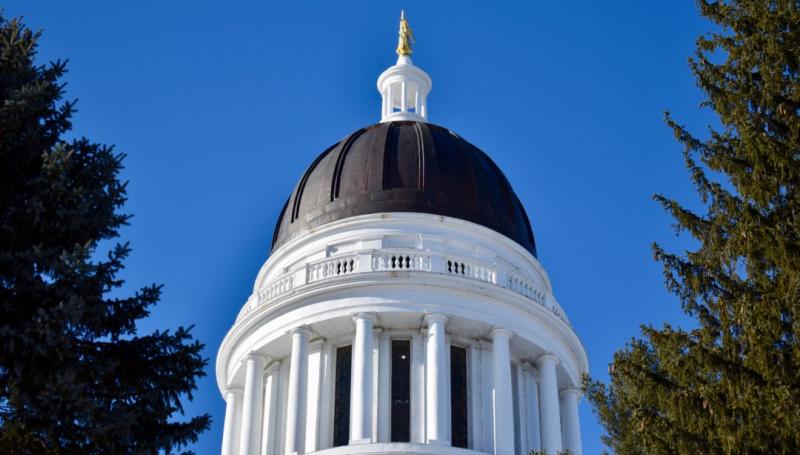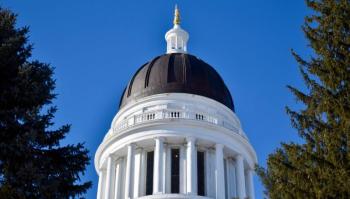Budget committee reaches unanimous agreement on supplemental budget
AUGUSTA – In the middle of the night, in the wee hours of Friday, the Legislature’s Appropriations and Financial Affairs Committee unanimously approved a responsible supplemental budget proposal that delivers targeted inflation relief to working families and older Mainers, invests in workforce training, education and child care, and provides funding for nursing homes, hospitals and long-term care.
Below are highlights of the budget, as provided by a spokesperson for the Office of the Senate President.
INFLATION RELIEF CHECKS
More than 850,000 Eligible working Maine families and older Mainers will receive $850 in direct relief to help address rising energy costs, driven by the Russian invasion of Ukraine and the increase in natural gas prices, as well as inflation.
Recipients must be full-time Maine residents and have filed a 2021 Maine income tax return by October 31, 2022.
Eligible Mainers must meet the following income thresholds: Up to $100,000 if filing single or if married and filing separately; Up to $150,000 if filing as head of household; Up to $200,000 for couples filing jointly.
SUPPORTING OLDER MAINERS/RETIREES
Ongoing income tax relief for retired Mainers
Fixes to issues with public employee pensions
Funds the Maine Veterans’ Homes in Caribou and Machias to prevent a previously planned closure and support continued operations.
Invests in nursing homes, residential care facilities and other providers so those in need of long-term care can get the care they need close to home.
Supports cost-of-living adjustments and increased rates to support wages at least 125 percent for direct care workers who provide quality compassionate care to Mainers in long-term care.
Invests $25 million in Maine’s hospitals to keep these facilities open so Mainers all across the case can access care when they need it most.
Reduces the waitlist for in-home and community support services for older Mainers and other adults.
DELIVERING PROPERTY TAX RELIEF
The supplemental budget permanently expands the property tax fairness credit to give eligible working families and older Mainer much-needed relief on property tax or rent.
The maximum benefit is $1,000 each year for those under 65 and $1,500 for those over 65.
TAX CREDITS FOR WORKING FAMILIES
The supplemental budget increases the earned income tax credit to help 100,000 Maine families make ends meet amid rising costs of electricity, gas, child care and so much more.
WEATHERING THE PFAS CRISIS
Establishes a trust to address PFAS contamination: It acknowledges the need to address PFAS in several new areas, including compensation to help relocate farm businesses when remediation is not possible, monitor health and support new research and removal.
Improves Testing: Takes steps to help private labs build PFAS testing capacity.
Begins Abatement: Provides critical funding to abate, clean up and mitigate threats or hazards posed by PFAS.
SUPPORTING MAINE’S WORKING WATERFRONT
Provides funds to help Maine’s lobstering industry weather threats from the federal government.
INVESTING IN WORKFORCE TRAINING + EDUCATION
Creates the Education Rainy Day Fund: This will ensure the state continues to meet its obligation to fund public K-12 education at 55 percent as mandated by the voters in 2004. This will also take some of the burden off of property taxpayers.
Investments in Career and Technical Education: This will ensure Maine’s CTE programs have the materials and equipment to train students so they can fill gaps in the workforce and earn good wages upon graduation.
Supports Jobs for Maine Graduates (JMG) programs in middle and high schools.
Continued funding for universal school meals: This will ensure Maine students can continue to access healthy school meals at no cost.
BRINGING DOWN THE COST OF HIGHER EDUCATION
Two years of free Community College: The supplemental budget provides up to two years of free community college for all students from the high school graduating classes of 2020 through 2023 who enroll in a Maine community college full-time.
Freezes in-state tuition at the UMaine System: The supplemental budget freezes tuition for Maine residents pursuing a four-year degree so they can complete their program and enter the workforce.
Improves the Opportunity Maine Tax Credit: The supplemental budget increases the maximum annual individual benefit from $2,000 to $2,500, up to a $25,000 lifetime benefit.
SUPPORTING CHILDREN AND FAMILIES
Bolsters the Child Care Workforce: Helps child care providers recruit and retain workers, keeping their doors open and preparing Maine children for Kindergarten while their parents are at work.
Health insurance for Maine children: Improves eligibility for the Children’s Health Insurance Program, otherwise known as CHIP, to ensure Maine kids can get the care they need.
Supports Paid Family Medical Leave: Funds an actuarial study to determine the feasibility of Paid Family Medical Leave.
Prevents child lead poisoning: Provides one-time funding to support the purchase of a more effective and reliable child lead case management system for the lead poisoning prevention program.
Rebuilds Maine’s oral healthcare program: so children can access dental care during elementary school, making Maine eligible for federal matching funds.
ACCESS TO JUSTICE
Civil Legal Services: Makes an ongoing investment in Maine’s civil legal services to ensure representation of persons who otherwise are not able to pay for these services, including eligible older Mainers and survivors of domestic violence.
Improves election security
INCREASES ACCESS TO HOUSING
Funds emergency housing relief for families struggling across the state.
Creates the Housing Opportunity Fund to provide towns support in expanding housing supply.
Finally, keeping the Budget Stabilization Fund, otherwise known as the Rainy Day Fund, at $492 million, the highest it has been in our state’s history.



























